A post that appeared on a Webtoons sub-Reddit earlier this week criticizing WEBTOON’s contracts for comics creators in their Originals program has led to a lot of heated online commentary about publishing contracts, artists’ rights and control of their intellectual property. The original post alleges that WEBTOON’s Originals contracts include terms and conditions that are far less favorable for creators than previous versions of these agreements, with the author of the subreddit post describing the contract as “unethical.”
Line WEBTOON is one of the world’s biggest and most popular platforms for vertical-scrolling comics (a.k.a. “webtoons”). Besides being one of the leading sites for webtoons in S. Korea (where their parent company Naver is headquartered), WEBTOON has expanded rapidly over the past decade, entering various markets in different countries by publishing popular series that were originally published in S. Korea alongside original comics by creators from all over the world. (For clarity, we will use WEBTOON to refer to the company and webtoons to refer to the format.)
Several successful series by global creators, including Rachel Smythe’s Lore Olympus have used the WEBTOON platform to get their stories out to readers in Asia, Europe, N. and S. America and beyond. Some creators have parlayed this global exposure into graphic novel publishing deals with companies like Penguin Random House and through WEBTOON / Wattpad’s own publishing imprint, WEBTOON Unscrolled, which is distributed by Macmillan. (Disclosure: Wattpad is an advertiser on this site.)
As the webtoons format is becoming increasingly popular, this article is an attempt to look at what we know about the business model as offered by WEBTOON, what we don’t know, and what creators are complaining about.
WHAT’S THE DEAL?

In addition to the Originals program, WEBTOON also offers Canvas, a program that’s focused on user-generated content (UGC). WEBTOON Canvas creators do not sign contracts with WEBTOON, and maintain full control of their work. Canvas series earn money via advertising revenue sharing and, when the program launches later this year, Super Likes purchases from fans.
According to WEBTOON, the company offers several monetization options for creators, including ad revenue, paid content purchases (when readers pay “coins” to get access to the latest chapters of a series), Super Likes (a recently-announced program that will allow readers to “super like” a series, kind of like a tip jar. It’s set to debut for Canvas creators “in a few weeks” and for Originals creators later in 2024).
WEBTOON also offers an international localization program, to help comics get translated and published in other languages, and thus generate additional revenue from new regions. WEBTOON Originals creators receive advances to help jump-start production of new series, and episodic payments to assist with ongoing production – a process WEBTOON refers to as investing in creators with talent and vision.
However, according to the original poster (who has since deleted their account) the latest terms of WEBTOON’s Originals contracts are an unacceptable rights-grab. Among the allegations from the OP:
- WEBTOON would automatically have the ability to buy 100% of the IP of an Originals submission, something their OP says has already happened to some creators.
- WEBTOON would own the print publishing rights. “Digital publishers should NOT have print publishing rights,” the OP wrote, “only digital publishing rights. If you didn’t know, print publishing rights can be bought by publishers in a deal that can be anywhere from 5-6 figures of $. This means that if I signed the webtoon originals deal, I would be giving away my print publishing rights to webtoon for almost FREE. there is a clause that specified they would pay me $2k for automatic ownership of my printing rights, which is again a huge ripoff when compared to 5-6 figures.”
- WEBTOON would own all the merchandising rights, preventing creators from making and selling their own merch.
- According to the OP, WEBTOON would become the agent for print publishing and multimedia (movie/TV, etc) deals for the comics series, which the poster characterized as “highly unethical.” They continued, “An agent is supposed to be a third party with your best interests in mind. if WEBTOON is my digital publisher and also my agent, it could just sell my rights to another one of its branches.”
The OP also said the compensation was “severely lacking.” They summed up their feelings, as being “shocked and angry about the contract and am saddened every time a new original’s deal is announced because I know the creator has basically given up all of their rights just for an opportunity to be an originals. Though I also heard you can argue some of the clauses out if you have a lawyer on hand and can afford one, but not many creators do.”
The Beat reached out to WEBTOON for comment and received this statement:
“We’re aware of a post online that misrepresents our terms and how we work with creators. At WEBTOON, we’ve created multiple programs that allow creators to select the path to monetization that works best for them and their series.
“Our platform monetization models prioritize creators, ensuring they can build an audience for their webcomic and make money. Our terms enable creators to maintain ownership of their webcomic while bringing their story to life in a growing number of monetizable formats.”
WEBTOON also provided some details of how the Originals contract works: it requires digital exclusivity to the platform, lasting three years from the date of the series’ completion. This means that the series can only be featured online on WEBTOON, and not on other webtoon platforms, personal blogs, or webcomics sites or apps.
While Originals creators do receive money from WEBTOON to start and maintain the series, creators in this program potentially maintain majority ownership of their webcomic, and earn money through reader purchases, ad revenue and other monetization mechanisms while their comics are featured on WEBTOON. Comics creators can shop their project around to other websites or print publishers on their own, after their exclusivity period with WEBTOON ends – but three years after the last chapter of a series is not an insignificant period of time.
When asked for comment, a WEBTOON spokesperson pushed back against the claims made in the Reddit post, saying that most of what was described was inaccurate. For example, according to WEBTOON, their contracts don’t allow purchase of 100% of the IP. WEBTOON denied that this had occurred in the case of the OP or for any other WEBTOON creators.
WEBTOON characterized their participation as being an investor in the work, with creators maintain ownership of their underlying IP. According to a spokesperson, WEBTOON’s deal supports creators at every stage of the process, without any guarantee of the company recouping the costs involved with launching a new Originals series on their platform.
Regarding the Reddit post’s claim that upon signing with WEBTOON, the creator would be ceding ownership of their publishing rights to WEBTOON, according to the spokesperson, WEBTOON has an option to acquire the print publishing rights for a limited amount of time. Should that option be exercised, they will acquire the rights and creators will receive standard industry compensation, in accordance with business practices common in print book publishing in N. America.
As for merchandising, WEBTOON describes the deal as an exclusive license to develop merchandising opportunities on the creator’s behalf, with the creators receiving royalties. The deal is exclusive, they say, mostly to centralize efforts to find, negotiate and finalize merchandising / licensing efforts.
As far as WEBTOON becoming an agent for the comics creator/webtoon series, the platform says that once again, their contract simply describes an option to purchase multimedia (e.g. TV/movie and/or anime) rights, subject to industry standard compensation terms, with the creator receiving the majority of rights fees. WEBTOON compares their role to being a producer, not an agent. Indeed, this is a fairly typical clause in many publishing deals that focus on media rights, although, once again, how long the option applies for and whether the creators can get those rights back is a key element of any deal.
Finally, WEBTOON characterized the Originals arrangement as one where WEBTOON and the comics creators become business partners, working together to use their resources to find mutually beneficial opportunities to invest in creators and their work.
Obviously there are many claims and counterclaims in all this. Without seeing the actual contract that the original poster is referring to, it’s hard to judge how much of the terms in the WEBTOONS Originals contract are negotiable, how long all of the terms apply, or whether the situation described by the original poster is accurate or not. Each creator’s agreement with WEBTOON might be slightly different, depending how the creator, their agent and/or lawyer might have settled terms of the agreement before signing. (Want to send us a copy of a recent contract? Anonymity guaranteed.)
Through our correspondence with WEBTOON, we did learn that there are several terms that WEBTOON and creators can negotiate. This includes situations where WEBTOON might acquire a portion of underlying IP; but in cases a creator opts out of this type of arrangement, creators would maintain 100% ownership, and have final say in any exclusive licensing opportunities (e.g. merchandise, print publication and TV/movie adaptations) that might arise.
But as mentioned above, the digital exclusivity period spelled out in a contract for WEBTOON Original series is three years past the ending date of a series, which, in practical terms, covers the time when a story would almost certainly have its greatest impact and readership.
CREATORS SPEAK OUT
Whatever the details, the Reddit post drew many responses on Twitter/X from comics creators airing concerns that WEBTOON’s contracts have become progressively more restrictive, with some characterizing them as predatory. Some veteran creators have compared it to TokyoPop’s OEL (Original English Language) manga contract, back in the ‘00s, which saw many then up-and-coming creators (including Becky Cloonan, Queenie Chan and many more) lose their rights to their work after signing what was essentially a work-for-hire contract.
A sampling of responses, including several from current and former WEBTOON creators:
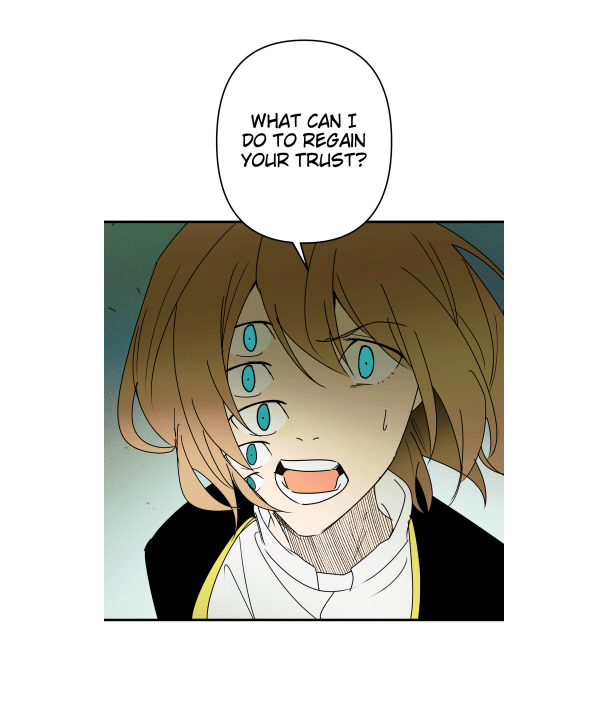
Hakei (Your Wings and Mine): My offer wasn’t this bad, but it’s why I declined on signing YWAM to be an Original. These contracts prey on inexperienced, desperate creators.
FTBComics (fromthebun): I’ve been offered two contracts by one of the big boys during my time in online scrolling comics, they were so bad it was what ultimately made me seek out work in a more financially stable field and keep my comics a passion hobby.
Chihiro Howe (Raven Saga): Why do you think I never promote my series anymore…I’m quitting, and I don’t want them to own my series after my contract is done. If the series don’t bring them money, then they won’t buy my IP.

Ray Dokomi, creator of the popular strip Boyfriends had a lot to say in a Twitter thread:
My contract is not even this bad and I’m already ready to kill myself.
Did you know that they stopped translating my Spanish version and refused to continue it at some point? I offered to pay for translations myself, and even then there were some pushback when I brought it up.
Did you know they stopped acknowledging me publicly around 1-2 years ago.
Do not sign with Webtoon, and if you’re already there, don’t sign any additional contracts like IP acquisition and merch contracts, it’s all bullshit and empty promises.
Emily Erdos (Blades of Furry): Never sell your IP, a publishing company does NOT need to purchase IP to publish your comic. Any company trying to purchase any majority stake (or any percentage imo) is incredibly predatory.
Nathan D Hernandez: I turned down a bg job at webtoon in December bc I had a lot going on and they wanted me to sample 15 backgrounds in a week at below my rate at the time
Vimeddiee (Under the Aegis): I signed with webtoon in 2015 and I thought giving them digital publishing rights for 3 years from the end date of my comic, and them still profiting off it while I didn’t was predatory…now it’s WORSE. At least I had print publishing rights and owned my IP!
Kris Nguyen (Fictional Skin): It you’re seeing a lot of veteran WT Original creators not continue with WT/agenting up/ getting their own deals in other places within the last year, its not a coincidence lol
THE RISE OF WEBTOONS
Why does this matter? The webtoons format is the preferred way to buy and read comics in S. Korea. In S. Korea alone, the webtoon publishing business generated 1.83 trillion won ($1.34 billion USD) in 2022, according to a report from the The Ministry of Culture, Sports and Tourism, in collaboration with the Korea Creative Content Agency (KOCCA). Webtoons’ popularity has been rapidly spreading throughout Asia too. Numerous Japanese manga publishers are investing heavily in webtoon production, including Shueisha’s JUMP Toon, Amazon’s FlipToon, Kadokawa’s TATESC, and Rakuten’s R-Toon, in addition to steady growth in Europe and the United States.
In S. Korea, digital publishing is the primary way comics are published and distributed. Many webtoons are only published digitally, with few getting released as print editions. In some cases, the English edition of some popular webtoon series are the first print editions in any language.
Vertical scrolling comics provide a quick read on a mobile phone while standing in line or killing time. Their convenience and made-for-mobile format, and snackable, addictive stories have made webtoons one of the most popular ways for readers, especially a lot of younger fans, to read comics anytime, any place. As more publishers from almost every major comics publishing market (including Japan and France) are increasing their investments in creating and publishing vertical-scrolling comics, what happens with webtoons now will likely have an impact on comics creators for years to come.
In some ways, WEBTOON acts like a tech startup, but it’s not a scrappy newcomer – not by a long shot. According to Forbes, Naver’s revenues in 2023 topped $6 billion USD, with over $588 million in profits. WEBTOON Entertainment is a separate brand and business entity from the overall Naver conglomerate, but compared to other digital comics start-ups, WEBTOONS has a huge marketing budget to advertise their platform (including one that raised the ire of creators and readers for some klutzy language a few years ago.) But just how WEBTOON monetizes its output remains a mystery, even as the company has talked about paying creators millions of dollars.
The company has also come under fire for its opaque moderation policies and for ending its Creator Rewards Program in early 2023. In late 2022, Leeanne M. Krecic (Mongie), creator of Let’s Play, a rom-com-drama set in the world of gaming, parted ways with WEBTOON and put her series on hiatus. Her next series, Dragon King Oath will be published exclusively on a rival webtoon app/platform, Manta.
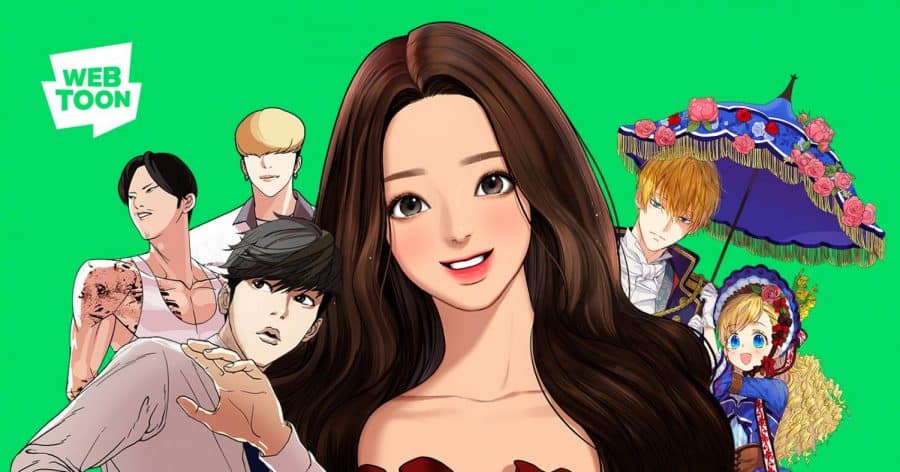
In S. Korea, where the webtoons format was invented and became hugely popular, controversy over creator rights and working conditions have been front page news. There’s precedent for workers organizing and demanding change in the Korean webcomics industry. In January 2018, per Korea JoongAng Daily, artists and readers stood outside the Seoul headquarters of Lezhin Comics to protest the company’s mistreatment of creative talent. Lezhin issued a public apology, but only after several artists put their series on hiatus in solidarity.
But it’s also worth noting that WEBTOON has earned its share of kudos from publishing professionals, creators, and fans for how it provides opportunities for comics creators to put their comics in front of a global readership. As recently as 2020, journalist David Harper praised WEBTOON on his SKTCHD podcast as being “the first truly modern comics publisher.”
Another aspect to this controversy is WEBTOON’s plans for an IPO later this year, with a valuation between $3-4 billion. All that money in play, and being owned by Naver, one of the dominant media and technology companies in S. Korea, makes the issue of paying comics creators fairly an especially sensitive – and important – topic.
Being on a platform like WEBTOON that offers many resources can be beneficial for beginning creators. Besides putting comics in front of potentially millions of readers, WEBTOON also prides itself on offering a range of services aimed at helping comics creators get started, keep going, and taking their work to the next level with publishing, licensing and even movie/TV deals.
But that said, all comics creators, both newbies and veterans, should be wary of deals that require that they sign away their future rights to their work, and the outcry from so many creators who have been published on the WEBTOON platform is concerning, to say the least.
The overwhelming advice is simple: don’t sign any contracts without reading them carefully, and whenever possible, get a lawyer or your agent to look at it first. And don’t sign away your IP.
With the vertical scrolling format becoming more popular all the time – and with US publishers branching out into the format – ensuring creators are treated equitably should remain a priority. This dialog is only just beginning.
[Deb Aoki, Heidi MacDonald and Adam Wescott contributed to this report; additional reporting by Justin Guerrero.]


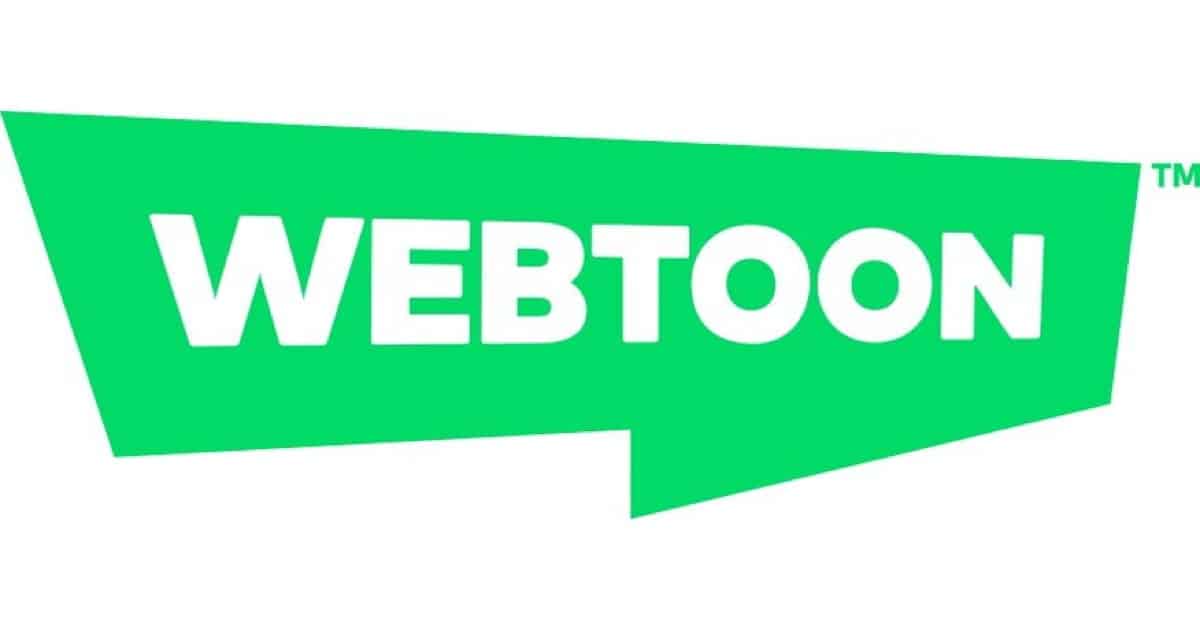
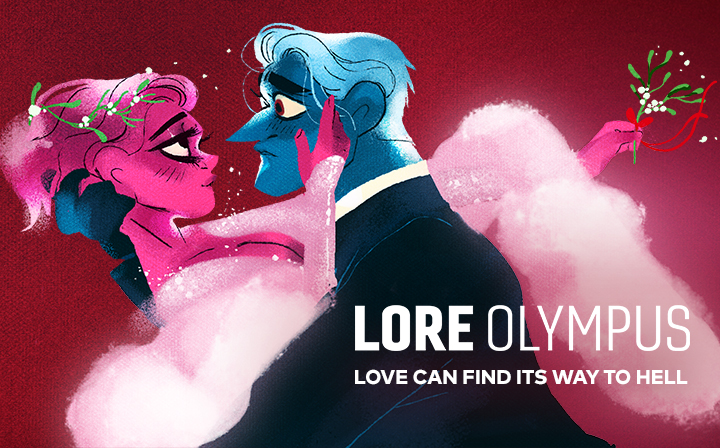


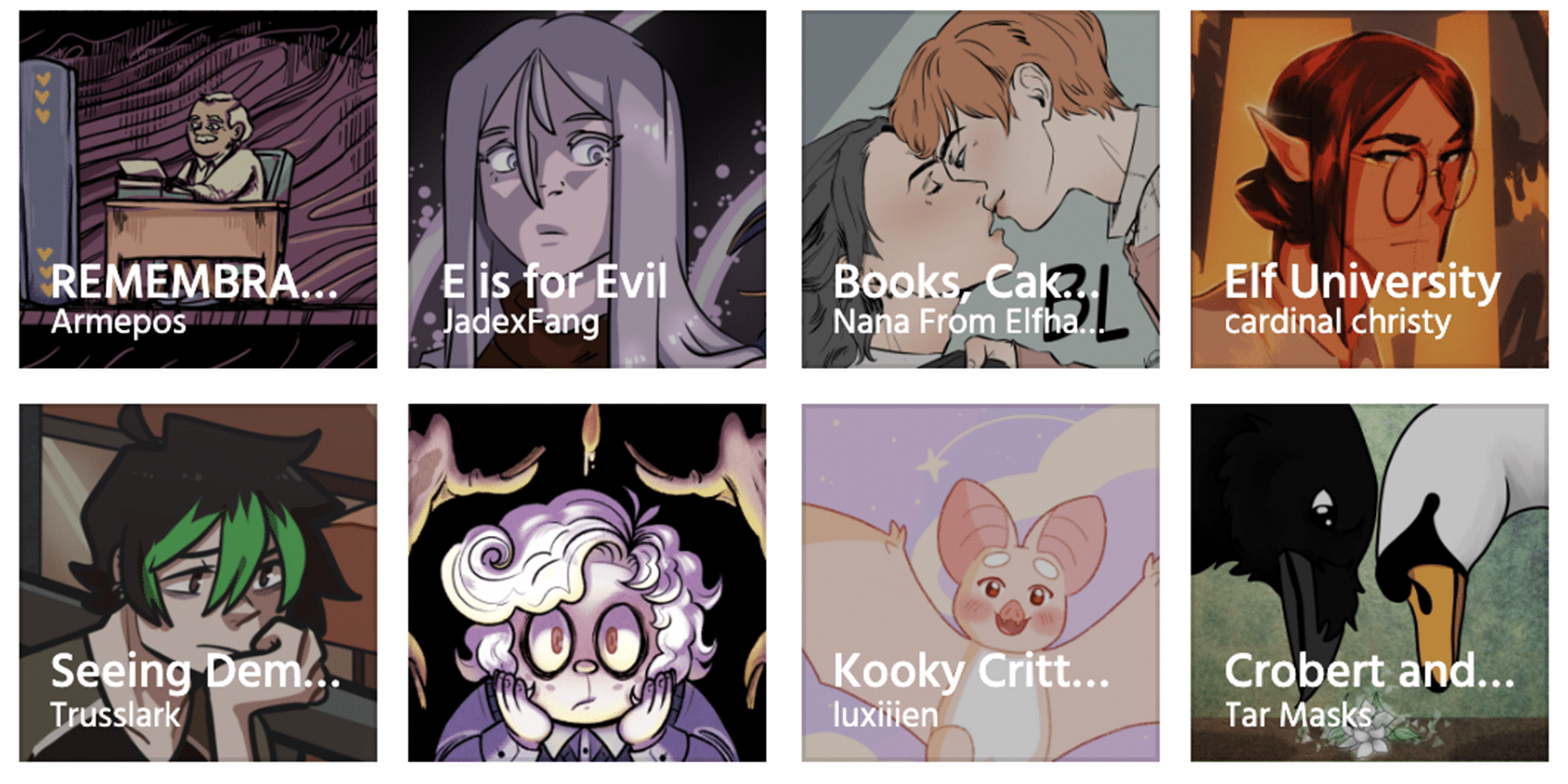
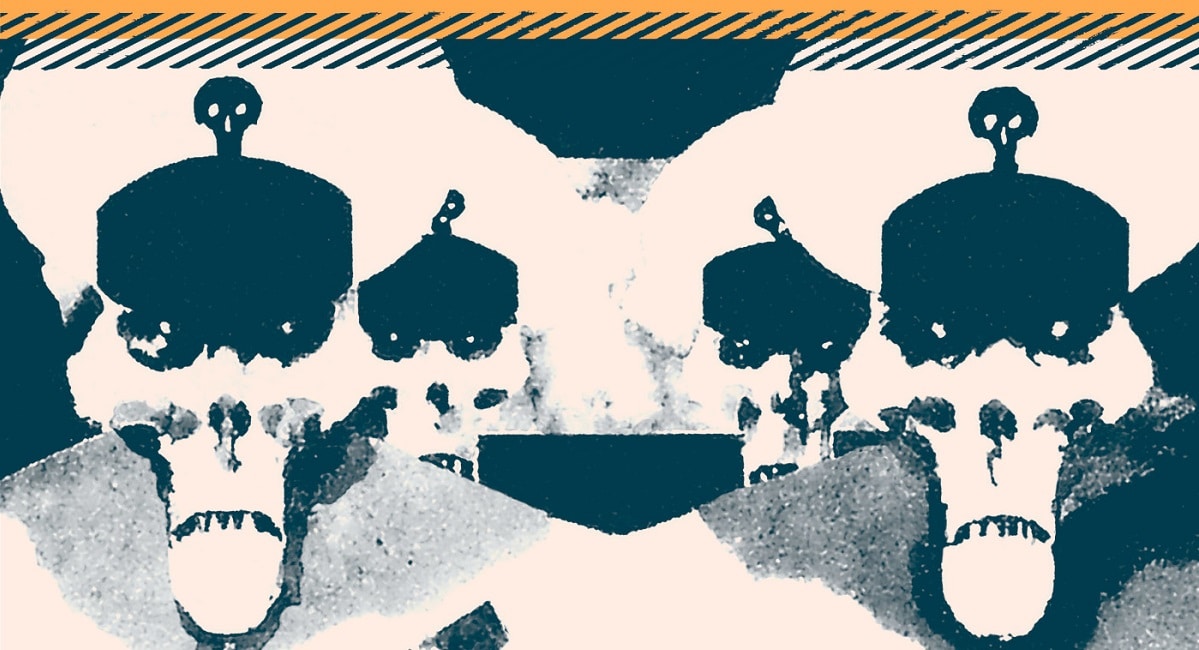


It is the story as old as comics, especially comic books, going back to the Golden Age with the twist being in the modern distribution model. I am not surprised that corporations are going to try and exploit as it is their nature. I appreciate The Beat, as always, for shining a light on this type of predatory behavior.
IF the contract is as described, it’s terrible and predatory, taking advantage of creators who just want to be published. Every cartoonist should at a minimum keep all (not some percentage of, but ALL) their copyright, merchandising rights, and theatrical/derivative works rights. Re: foreign rights, the best advice I know is that if you think you can manage them better than your publisher keep them; if you think your publisher can manage them better (has contacts in other countries that you don’t, etc.), maybe let them keep them.
That said, the first draft of every contract I’ve signed has the publisher retaining some of those rights and it’s up to you to cross them out. The publisher expects you to negotiate away those clauses but they probably figure it doesn’t hurt to ask. If you don’t have an agent, hire an attorney who can tell you what to cross out. It’s worth it. I have too many friends who’ve lost control of their own stories or watched everybody make money but them.
And it goes without saying but is the hardest thing to do: don’t be afraid to walk away. Getting no deal is better than living with a bad one.
Great reporting. Thanks for going into depth on this one. It definitely seems like an unnecessarily slanted contract.
Comments are closed.